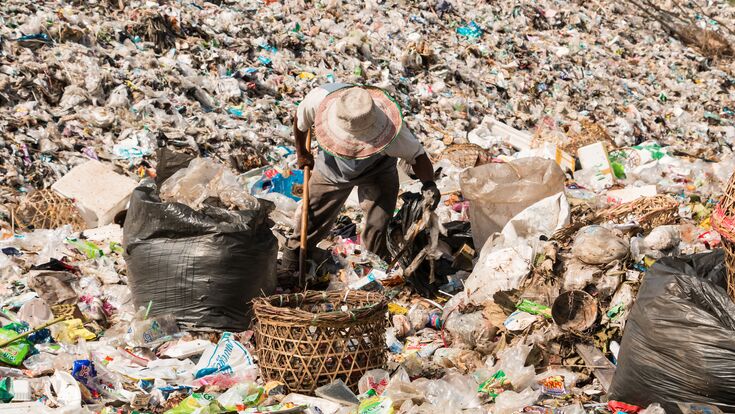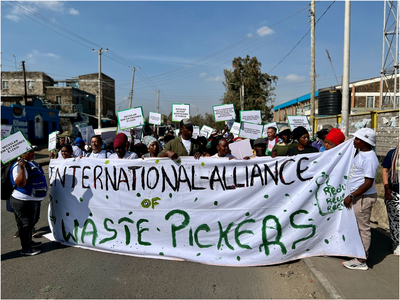Informal Waste Sector : International Waste Pickers Day: Alliance meets in Nairobi

The 1st of March is International Waste Picker’s Day. The day commemorates the waste pickers who lost their lives on that day in 1992 at the Universidad Libre De Barranquilla, Colombia. 11 years ago, under the pretext of collecting recyclable materials, waste pickers were invited to the university. Once inside, they were beaten and shot. Their bodies were to be used for research and organ trafficking.
Currently waste picker representatives from 19 countries are meeting for a week in Nairobi for the International Alliance of Waste Pickers Coordination Meeting. The general objectives are to discuss interim work leading up to their Elective Congress, to promote networking and building trust between waste pickers from different regions.
The waste pickers also visited the Dandora dumpsite, which covers approximately 70 acres and is the destination for approximately 1,100 tonnes of solid waste generated daily by Nairobi's population. The dumpsite supports the livelihoods of some 3,000 waste picker families. They recover plastic, food, clothes, paper and bottles, which they can sell to generate much-needed income. "One of our biggest challenges here is access to health and access to education," says Winnye and Joyce, National Organizing Secretaries of Kenyan National Waste Pickers Welfare Association (KENAWPWA).

Informal recycling sector larger than formal
More than 20 million people around the world work as informal waste pickers. Waste pickers are the largest workforce in the recycling chain and recover a higher proportion of recyclable materials than formal waste management systems.
Through their work in the recovery of recyclable and reusable materials, waste pickers - who are often discriminated against and stigmatised because they belong to poor and marginalised groups, the working class, oppressed castes, ethnic, religious and racial minorities, indigenous peoples, climate and war refugees, and survivors of violence and substance abuse - play an important role in curbing plastic pollution and reducing carbon emissions.
The waste pickers demand the following from the national and county governments in Kenya and governments around the world:
- Recognise the profession of waste picker and the right of waste pickers to access waste.
- Waste pickers should be paid fair and better prices for the recovery and recycling of recyclable and reusable materials.
- Affordable, comfortable and quality housing for all waste pickers and their families.
- Government should give waste management tenders to waste pickers, managed companies and organisations.
- Health and life insurance for all waste pickers and their families.
- Dumpsites should not be closed until sustainable and regularised livelihoods for waste-pickers have been established.
